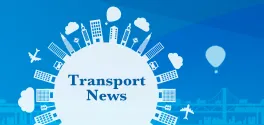Labour’s first 100 days – a review from the Transport Planning Society
If a week is a long time in politics, the 100 days since Labour’s election victory feel like an age. The headlines have been dominated by public disorder, stark descriptions of the £22bn fiscal “black hole”, rising geopolitical tensions and a string of stories about ‘freebies’. The new government’s honeymoon period has been brutally short.
How has transport fared in these febrile times? And how far does Labour’s approach to transport match up to the TPS’s manifesto asks of the new government?
A new look Department for Transport
The Department for Transport (DfT) kicked off proceedings with an impressive set of Ministerial appointments. Lord Hendy was given the rail brief, Simon Lightwood took Local Transport, Mike Kane is responsible for Aviation, Maritime and Security and Lillian Greenwood heads the new Future of Roads team.
The appointments were widely praised throughout the transport industry and were emblematic in Westminster of the shift from the ministerial merry-go-round under the previous government to the appointment of experienced experts. The appointment of Active Travel England CEO Danny Williams as the Director leading on the government’s integrated national transport strategy is another welcome addition to the team.
Since then, the team have largely stayed out of the limelight, as most of the announcements and key decisions have come from the Secretary of State. The ministerial media performances and industry events which have taken place have all been professional and largely without controversy.
Louise Haigh set out her stall very clearly on arriving at the DfT. Her five priorities – improving rail performance and delivering rail reform; improving bus services nationwide; transforming infrastructure; delivering greener transport; and improving integration – are hard to argue with. Perhaps most importantly for the TPS, she framed sustainable transport as means to achieving wider policy goals, rather than an end in itself. “Growth, net zero, opportunity, women and girls’ safety, health”, she said “none of these can be realised without transport as a key enabler”.
National Planning Policy Framework consultation
Another National Planning Policy Framework (NPPF) consultation went live in July, less than two years since the previous administration did the same. The consultation is part of the Ministry for Housing, Communities and Local Government’s (MHCLG) wider reform to planning policy to increase the rate of housebuilding and unlock the growth they believe accompanies it.
The consultation opens up the welcome prospect of the end of “predict and provide” in transport planning for new development, instead adopting a vision-led approach that seeks to move away from simply catering to historic levels of traffic growth towards supporting the development of a genuinely sustainable transport network. However our members identified potential risks of unintended consequences from the changes that will require comprehensive new guidance if these are to be avoided and the potential of the new approach fully seized, TPS has offered to support the Government in developing this guidance.
You can read our response to the National Planning Policy Framework consultation here.
Planning and Infrastructure Bill
The King's Speech was extremely promising. Labour introduced four transport-related bills, three focusing on rail and one on buses. In addition, the English Devolution Bill also has implications for transport. Labour also announced the Planning and Infrastructure Bill, Angela Rayner’s plan to get Britain building and another key part of the programme to reform planning policy.
Exactly what the Bill will contain regarding transport provision is not yet clear. We will be urging MHCLG to work closely with the DfT to use the Bill to align land-use planning with planning for sustainable transport. This is a long-standing priority for the TPS and the top ask in our manifesto for a sustainable transport system. You can read more on this in our response to the previous NPPF consultation.
We also heard many positive discussions on the fringes at the Labour Party conference about the need to integrate transport and land-use planning and we are keen to offer the new government our expertise in this area.
Better Buses
The Secretary of State's main moment in the sun so far has been her announcement of the Better Buses Bill and the initial measures set to be the ‘biggest overhaul to buses in a generation’. We welcome the Bill as it aligns with our manifesto ask for an integrated, accessible and affordable public transport system across the UK.
Labour’s drive for a wider roll-out of bus franchising is a breath of fresh air to an industry which has seen years of service cuts. Its success will be dependent on buy-in from the Metro Mayors. Where franchising has worked well, in London and more recently Manchester, the regional mayors have acted as advocates, corralling and spearheading support and creating the organisational capacity to deliver a franchised network. With several mayors already declaring their interest, it bodes well for Labour.
Rail re-nationalisation
Rail re-nationalisation was one of Labour’s flagship transport policies throughout the election campaign, but has received less attention than some other commitments since election day. But the legislative wheels have been set in motion. The Public Ownership Bill passed its second reading in the House of Lords on the 7th of October after passing through the Commons with relative ease.
Nationalisation will not be a silver bullet and must be part of a comprehensive rethink of how our railways operate. Great British Railways (GBR) will be instrumental in the new system, uniting responsibility for track and trains and delivering integration across ticketing and customer information, to create a seamless service. Again, this aligns with our manifesto ask for an integrated, accessible and affordable public transport system.
We also welcome the focus on customers as, after all, transport is about people. Moving forward we hope GBR under Labour can improve accessibility, make services more affordable and continue to devolve powers where possible.
The budget and infrastructure investment
The Prime Minister and Chancellor would say that the messaging around the state of the economy and public services and the £22bn black hole reflect necessary “home truths”. But it has raised concerns about undermining public and business confidence. The Prime Minister has reiterated the Government’s commitment to investment in public infrastructure and public services. Meanwhile, the Chancellor is alleged to be investigating how the public finances can be managed to support that investment while sticking to her commitment not to increase taxes on “working people”, There will need to be significant capital and revenue investment in sustainable transport if it is to act as the enabler of the Government’s wider missions to create a healthier, fairer and more economically vibrant society. The key question will be how transport investment fares relative to other areas like the NHS, education and social care.
So what's the verdict?
For the most part, Labour’s approach to transport planning, and the performance of the DfT and MHCLG in the first 100 days, has been encouraging. They’ve set the wheels in motion for their structural changes to the public transport system and given a flavour of what planning reform may look like in practice.
We are pleased to see alignment with some of the key asks in our manifesto for a sustainable transport system. We look forward to working with the government to help deliver their priorities and await the publication of the national transport strategy in due course, which was another one of our key manifesto asks.
We are also keen to see how the government will deliver their top priority policies in the forthcoming budget, given the reality of their declared fiscal constraints.
Ben Plowden
Chair of the Transport Planning Society














